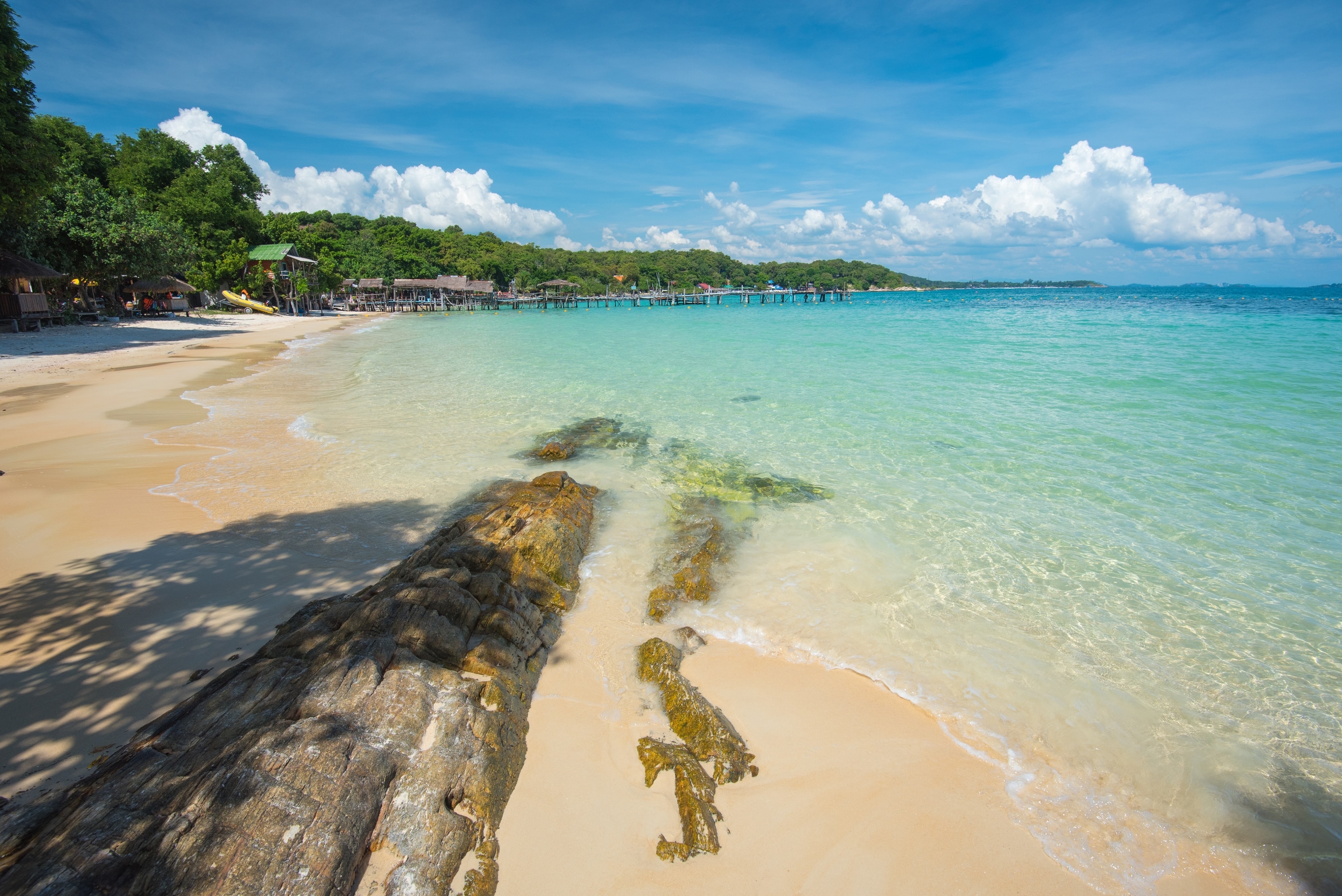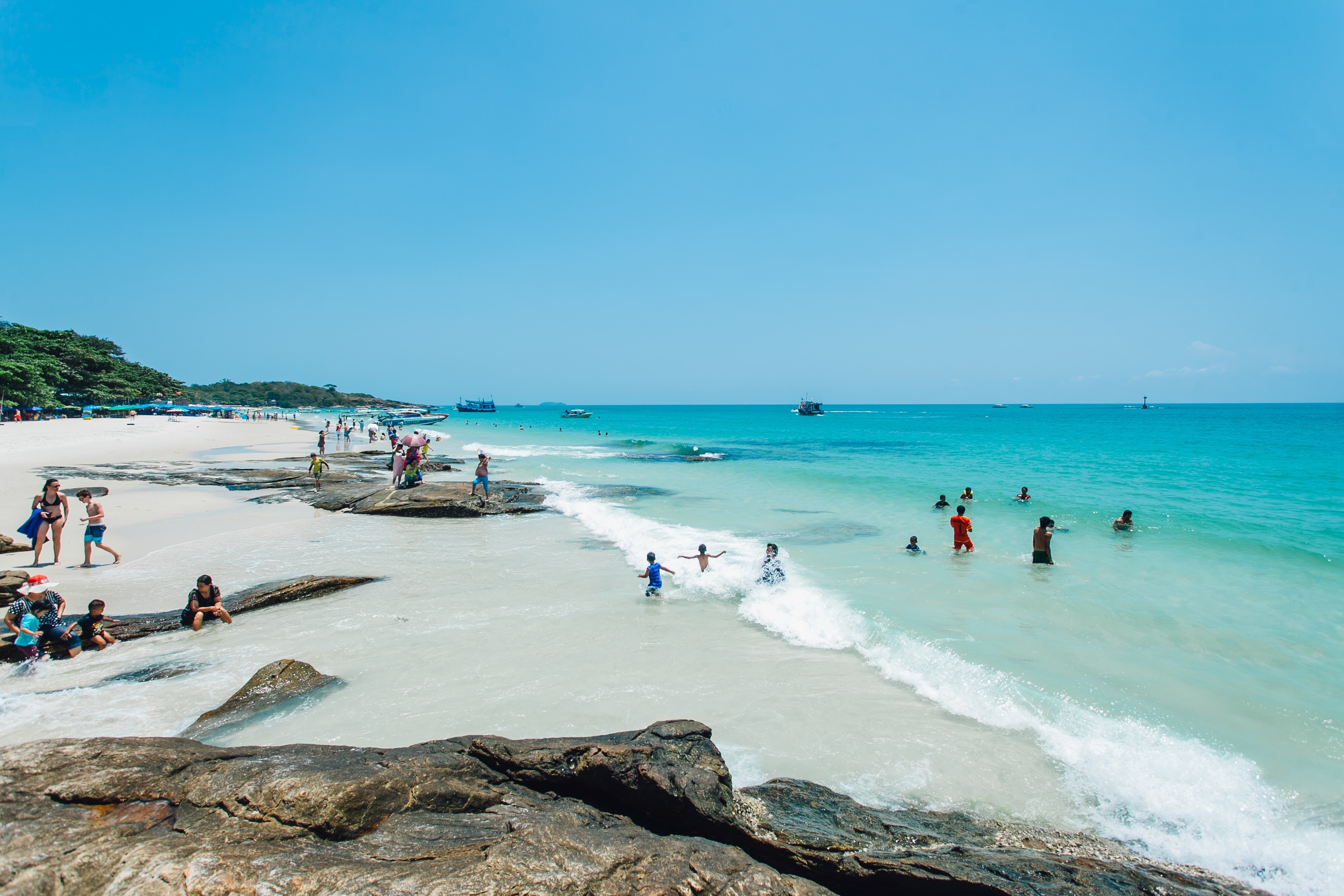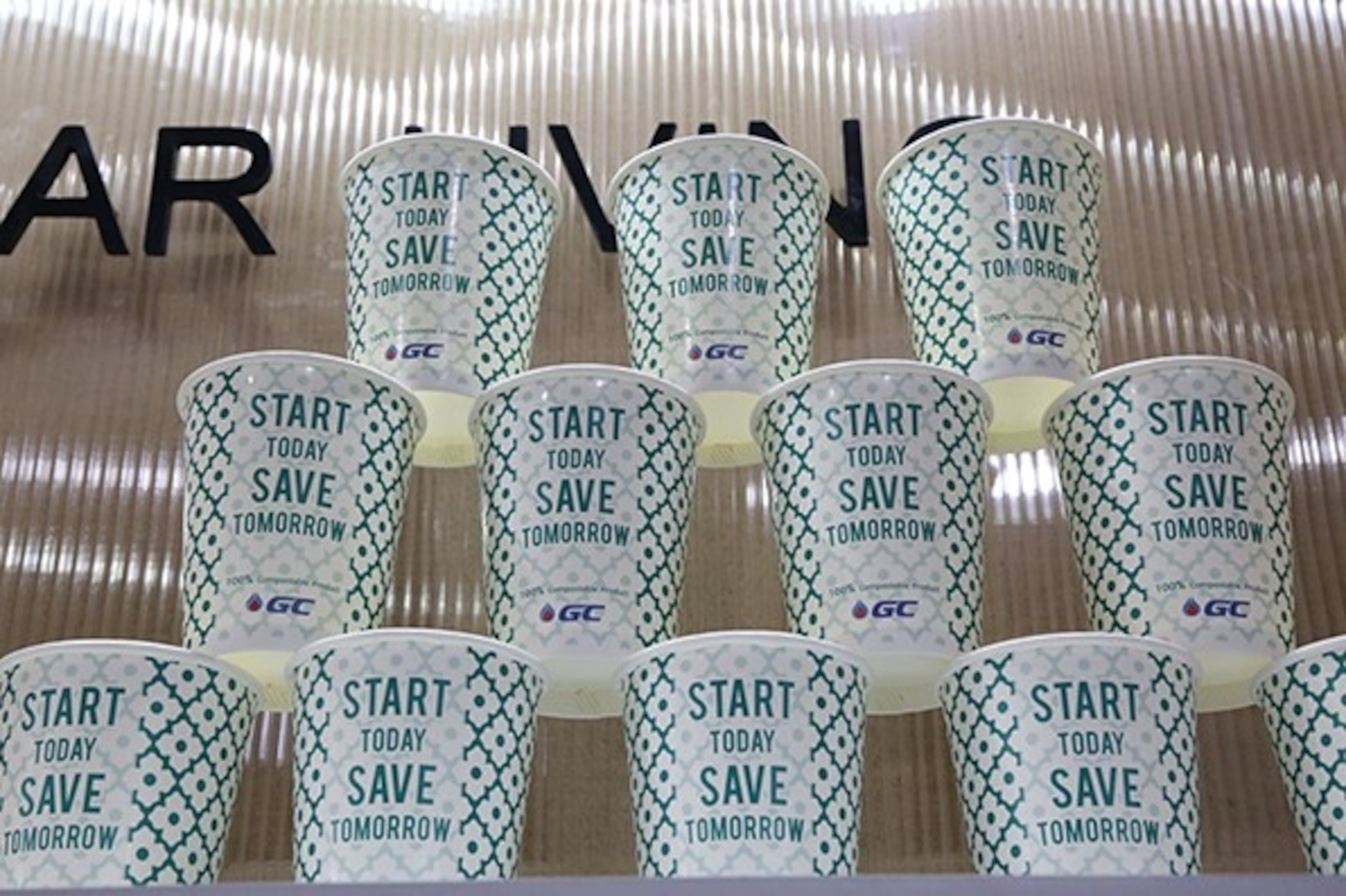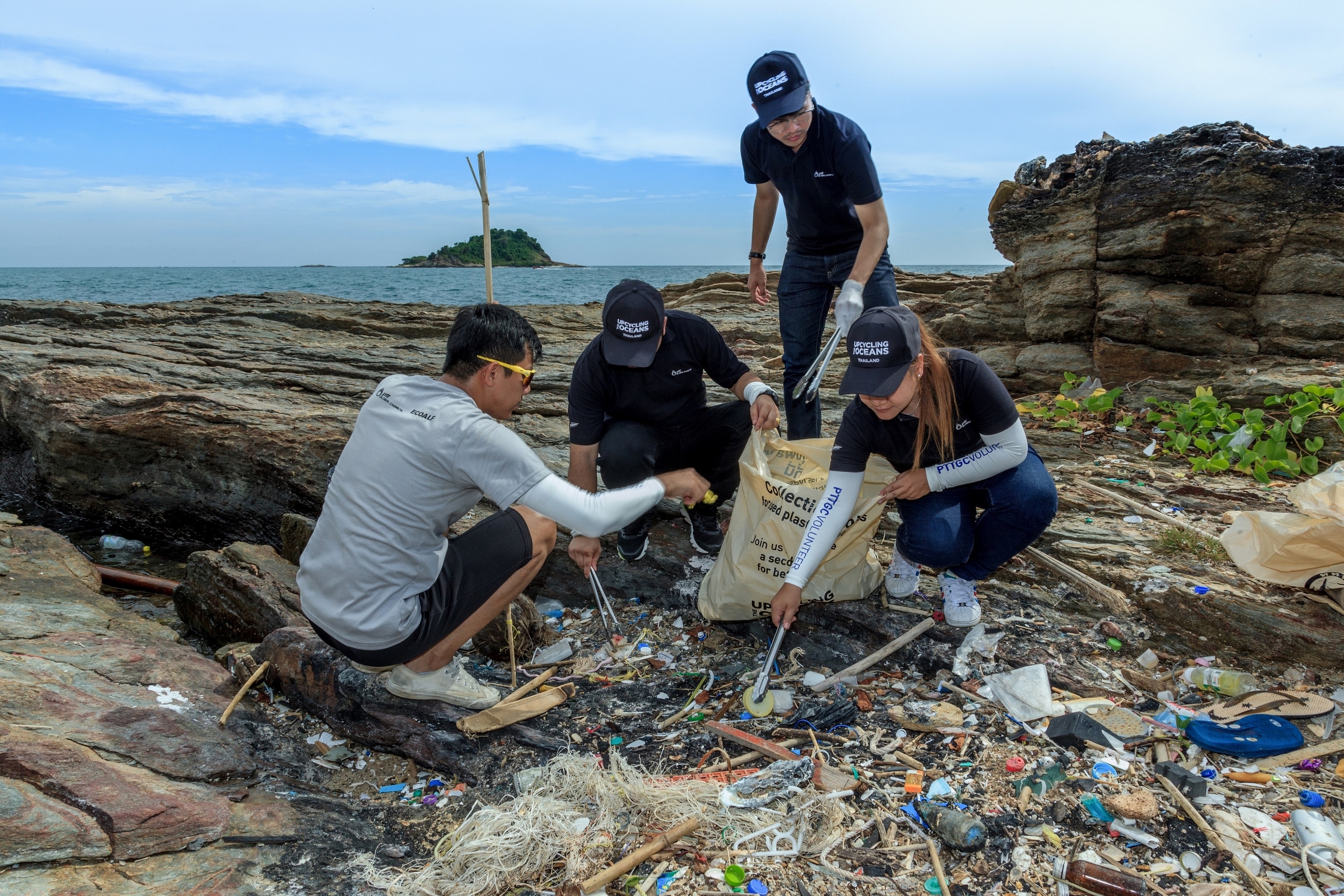
Beyond recycling: plastics in Thailand get a new life cycle
See how organizations are reducing waste by embracing a “circular economy” model.
From the moment we wake up and clean our teeth we are surrounded by plastic. Plastic brushes, plastic containers with paste, plastic flossing string, and that’s just the start. At home, at work, in the community, and while traveling, plastic has undoubtedly made our lives easier. But the era of single-use plastic – using a plastic item once and then tossing it away – may be coming to an end. Hopefully.
According to the Plastic Pollution Coalition, by 2050 the oceans will contain more plastic than fish by weight. Fragments of plastic are even being found in the seafood we eat. In Asia, plastic pollution is a growing concern as just five countries (China, Indonesia, Philippines, Thailand, and Vietnam) dump more plastic into our oceans than the rest of the world combined. Plastic ocean pollution is a particularly pressing problem in Thailand, which is the world's sixth biggest contributor to ocean waste.
Thailand addresses its plastics problem
Thailand is known for its beautiful beaches, and it’s one of the top 10 most-visited countries in the world. Tourism accounts for around 20% of the country’s GDP. Needless to say, bringing people here is key to the country’s success, but what’s left behind by all this tourism is arguably more important.
After all, vacation memories might last a lifetime, but the waste left behind lasts for several hundred more.

In recent years, the plastic waste that gets left behind by beachgoers has clogged many of Thailand’s oceans and beaches. Not only does this deter tourists, but it damages coral reefs and litters the ocean floor, entering the ocean ecosystem and emerging in scary places.
Now, individuals, the local government, NGOs (non-governmental organizations), and corporations are working together to combat plastic waste in Thailand, embracing a circular economy model to address the issue, but what does it really mean? According to the Ellen MacArthur Foundation, a circular economy “seeks to rebuild capital, whether this is financial, manufactured, human, social, or natural.” Which means instead of losing something by simply throwing it away, we find a way to reuse it or rework it into something else.
So how can this actually help us move beyond mere plastic replacements, which don’t fully solve the issue of current plastic waste?
Working toward change
Individuals can take steps to reduce their own plastic usage by doing things like using a metal straw instead of a disposable plastic one, bringing along reusable bags when shopping, drinking water from a reusable water bottle and using sustainable plastics or plastic alternatives - like bioplastic - instead of single-use alternatives. But it takes more than individual efforts to have a large-scale effect on the plastic problem. In order for Thailand to combat the waves of plastic waste affecting the country’s oceans and beaches, there needs to be concerted efforts from all parties: the local government, eco-minded organizations, and businesses all working together to address the root of the problem.
NGOs offer education and action hand-in-hand
While there are many large, internationally known nonprofit organizations working to combat plastic pollution in the oceans, homegrown groups in Thailand play a key role in providing education on plastic pollution while also encouraging people to take practical action steps on a local level.
Started in 2013 with Thai beach cleanups, Trash Hero is an effective homegrown way to demonstrate the immediate problem at hand. Today they offer a reusable water bottle program, educational workshops, and waste management tips for businesses to address the root cause of the plastic pollution issue.
Taking a more direct approach, EcoThailand seeks to improve local beaches and waterways by working with the Thai government, local communities, and tourists candidly to create and maintain a clean environment, addressing the plastics problem on multiple fronts. According to John Fitton from EcoThailand, “With the recent designation of an Environmental Protection Area, the southern Gulf islands of Koh Phangan, Koh Tao and Koh Samui, and their diversity of marine fauna, are a key target for reducing plastics usage, waste, and pollution.”
Clean the Beach Boot Camp takes a different approach by appealing to visitors to Thailand. The organization offers free beach workouts at three different locations, for tourists to both burn calories and feel great after. The catch? Participants have to volunteer to clean waste from the beach after they workout. And by doing so, Clean the Beach Boot Camp says they’ve removed 1.2 million pounds of garbage in four years.
David and Goliath
The little guys are not alone. Commercial businesses around the world, including those in Thailand, also have an interest in addressing the issue of plastic waste. They have a responsibility to reduce their environmental impact and to mitigate any damage done in the past while preventing waste from occurring in the future. Plus, more consumers are holding companies responsible for both preventing and cleaning up waste from plastic products.
Meghan Kerrigan was walking along the beach in Koh Samui and was devastated by the amount of plastic littering the area. Rather than just cleaning it up, she came up with a revolutionary solution: getting rid of the plastic water bottle itself. She founded a startup company called Generation Water, which makes products “designed to overcome the global single plastic use crisis.” Instead of plastic bottles, the company uses glass bottles that get sanitized, filled with fresh water, and delivered to local businesses like hotels and spas, as well as corporate meetings and events. “Water from air” is another solution from Generation Water, since the company has developed water generators that take vapor from air, condensing it into water.
And these companies are not the only ones making a big difference by looking at every small detail along the supply chain.
PTT Global Chemical Public Co., Ltd. (GC), an international petrochemical company based in Thailand, developed a “circular living” approach to the use of plastics using three core components: waste management, recycling/upcycling, and compostable bioplastics.
GC also promotes the use of plastic items made from a compostable plastic called BioPBS™. Under the right conditions, the composting process for this bioplastic takes about 180 days. Which is more palatable than the potential 450 years it can take a plastic bottle to biodegrade.

According to Mr. Supattanapong Punmeechaow, President and CEO of PTT Global Chemical PLC, “The plastic problem can be lessened if consumers use and dispose of plastic responsibly, and companies adapt business models that can help reduce or eliminate the use of single-use plastics.”
Going beyond beach cleaning
In 2017, the Upcycling the Oceans (UTO) Thailand campaign was launched through the joint efforts of the Tourism Authority of Thailand, the PTT Global Chemical Public Company Limited, and the ECOALF Foundation. As part of this initiative, volunteers remove plastic waste from Thailand’s oceans and beaches. But the campaign doesn’t stop there – once the plastics are collected, they’re further upcycled and turned into sustainable clothing. In 2017, 10 tons of PET waste bottles were collected from Samet Island and coastal areas in Rayong, and turned into 50,000 polyethylene terephthalate t-shirts.
Adopting a circular living approach, like this, to plastics benefits the environment, the companies that create and sustain these practices, and the consumers who need to use plastic products but don’t want to contribute to a plastic waste problem. People and companies used to view the use of plastics as a linear process: you make something, you use it, and you throw it away. Then companies and consumers began recycling. Now, efforts are being made at various points throughout the life cycle of a plastic item to ensure that it doesn’t simply go to waste.

Education and action across the board, from local start-ups to big players, will go a long way in reducing the use of disposable plastics in Thailand and beyond.